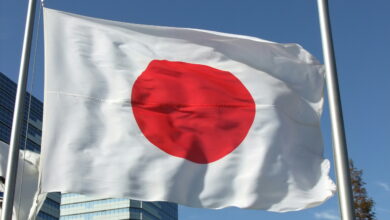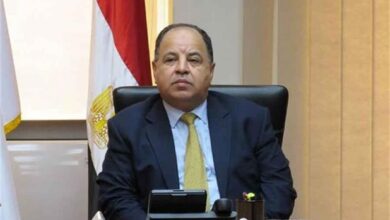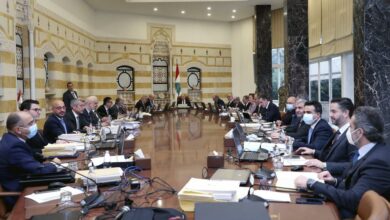After turning down loans from the International Monetary Fund and the World Bank, Egypt is now turning to oil-rich Arab Gulf States to finance its budget deficit.
Some of the money is supposedly being given freely, as “gifts” rather than loans, but some fears that accepting the money will come with political baggage and behind-the-scenes deals. The grants come as Egypt is testing its foreign policy in the region.
The irony of a newly-democratic Egypt turning to the traditional monarchies stifling dissent within their own borders has not been lost on many commentators.
“Why, how, what did we do to get their satisfaction?” said Reda Issa, an independent economic researcher who objects to Egypt taking money from the International Monetary Fund (IMF) and World Bank. “Why are they offering to give this money? Why now? Nobody knows.”
Just months ago, Gulf states did not express support for the revolution, said Issa,
Because their interests do not align with the forces that overthrew Hosni Mubarak, he said Egypt should be wary of their money.
Throughout the weeks of protest against the former president, the Gulf countries suppressed democratic movements in their own monarchies. Saudi Arabia offered to financially support Mubarak ‘s government if the United States decided to withdraw its US$1.5 in annual aid. Following his ouster, various Saudi government figures called for pardoning Mubarak.
In the most recent offer on 7 July, the United Arab Emirates promised that it would give Egypt $3 billion in financial assistance. The money would be in addition to Qatar’s pledge of $10 billion and the $4 billion Saudi Arabia has already promised.
Most of these offers are a mixture of funds, loans, and grants. The amounts will probably be paid at intervals.
The UAE money includes a $1.5 billion fund for small to medium businesses, $750 million in loans, and a $750 million grant, with no expectations of repayment. The Saudi money includes a $500 million grant to help finance the budget deficit, $500 million in loans, and $500 million in Egyptian bond purchases.
The $10 billion from Qatar will probably be mostly investments, but the country has also given some grants.
In the weeks that Egypt was revising its budget so not to take on IMF and World Bank loans, Qatar provided $500 million to help the budget immediately. Finance Minister Samir Radwan, when asked about any conditions to the money, said “That is a gift.”
Earlier this week Egypt’s new foreign minister announced that there is no pressure from Gulf countries to prevent the criminal trial of Mubarak, a theory that has been widely circulated. The foreign minister also denied that the Gulf states are pressuring Egypt not to resume regular ties with Iran.
The interim government has said it requires between $10 and 12 billion in international funding in the next year to keep running. It was initially thought that IMF and World Bank would help Egypt close the fiscal gap.
But after announcing a budget that was conditioned upon acceptance of a $3 billion IMF loan and World Bank money in June, Egypt’s finance ministry retracted the proposed budget last week.
In taking the money from the Gulf, analysts say, Egypt’s interim government is avoiding taking on debt from the World Bank and IMF, perhaps at the expense of making political concessions to Arab neighbors. The decision came as a surprise to some, including those involved in the talks.
Radwan said in an interview with the Financial Times that the decision was made in response to public disapproval of the IMF and World Bank. Other reports said the Supreme Council of Armed Forces (SCAF) had taken issue with conditions of the loans and did not approve them.
Two days after Radwan’s announcement, a World Bank spokesperson said that discussions were still ongoing and that they had heard nothing from the government to suggest the contrary. Ratna Sahay, IMF deputy director of the Middle East, maintained that Egypt had not decided against the fund’s offer because of IMF stipulations.
“Nothing was hidden or kept quiet,” she said.
And so a new budget was formulated and ratified on 4 July, with Gulf, not IMF, money picking up the slack. The new budget cut back on government spending and reduced the projected deficit from 11 percent to 8.6 percent. A copy of that budget has yet to be made public.
In an interview with Al-Jazeera television, Radwan said that the decision to reject IMF and World Bank money was because neither the government nor the SCAF wanted to leave behind “a legacy of debt.”
When asked whether money from the Arabian Peninsula came with any conditions, he said, “None whatsoever.”
But the disarray and opaqueness of it all, including how the Gulf money will be given and used, is what concerns Issa. Who knows, he said, what conditions could be attached to the money, because the government is not conducting talks in a transparent way.
“There has to be a political reason,” he said. “We are not foolish enough to believe that money is given for nothing.”
The UAE announcement comes just after Foreign Minister Mohamed al-Orabi assured Gulf leaders that Egypt will not pursue relations with Iran if it means risking stability in the region. Saudi Arabia, the UAE and Qatar consider neighboring Iran a threat to their security. During Orabi’s visit to the region, Orabi mostly assuaged the fears of Gulf leaders. Sharaf’s trip to the UAE struck the same tone. .
Alanoud Al-Sharekh, a senior fellow for regional politics at the UK-based International Institute for Strategic Studies and former analyst at the Kuwait National Security Bureau, said Gulf countries simply see their grants as an investment in the region’s stability that will help restore Gulf investors to Egypt.
“The GCC countries have all been crucial in supporting Arab states financially, they have a history of giving money to Egypt,” she said. “This is not a new phenomenon.”
Saudi Arabia and the Gulf are also home to hundreds of thousands of Egyptian workers, whose remittances feed money into Egypt’s economy. In addition to government support, Gulf businessmen are some of Egypt’s biggest investors.
It is a crucial period for the Gulf and the rest of the region, Sharekh said, a time when relationships can be strengthened or broken.
Saudi Arabia in particular, formerly a strong ally with Mubarak, does not currently enjoy a good reputation among most Egyptians.
In the days following the uprising, many speculated that Saudi royalty and businesses were funding a counterrevolutionary movement, perhaps even providing money to extremists that would incite sectarian violence.
In February, a government official said that Saudi Arabia had offered to host Mubarak in the country, but the former president turned it down, determined to die on Egyptian soil. Former Tunisian President Zine al-Abidine Ben Ali, also an unpopular figure, found sanctuary in the kingdom after being deposed by a Tunisia’s popular rebellion.
In May, Saudi princes offered to pay Mubarak’s hospital expenses, upon hearing that the Egyptian government was unwilling to foot the bill.
Not all Gulf States were on great terms with Mubarak; the Qatari ruling family and Mubarak were far from close, and their investments could be seen as a way to rewrite the relationship with Egypt.
In that light, the UAE, Qatar, and Saudi Arabia might be making clever plays to bolster their image and gain influence in Egypt’s new government.
The moves “also cement [the GCC countries’] position in foreign policy,” she said, “[irrespective of] whether they are popular on the street.”




